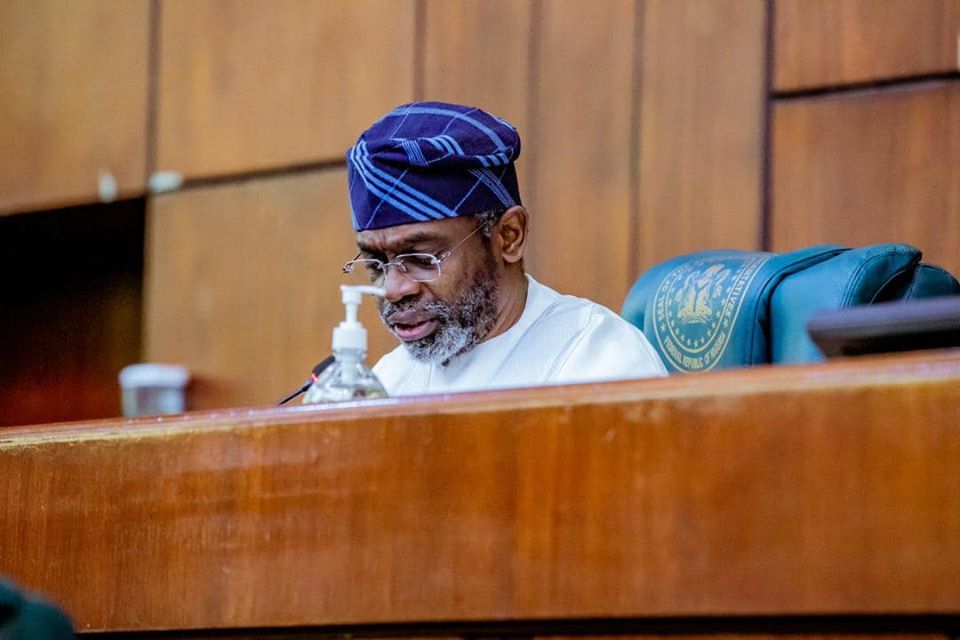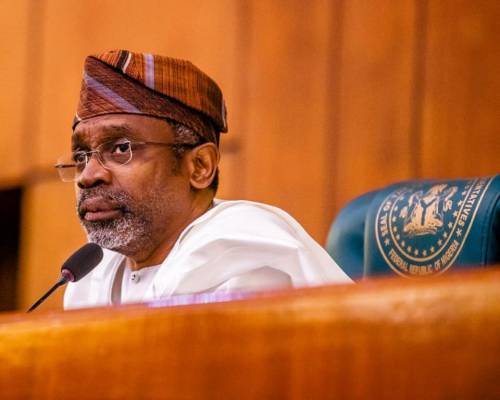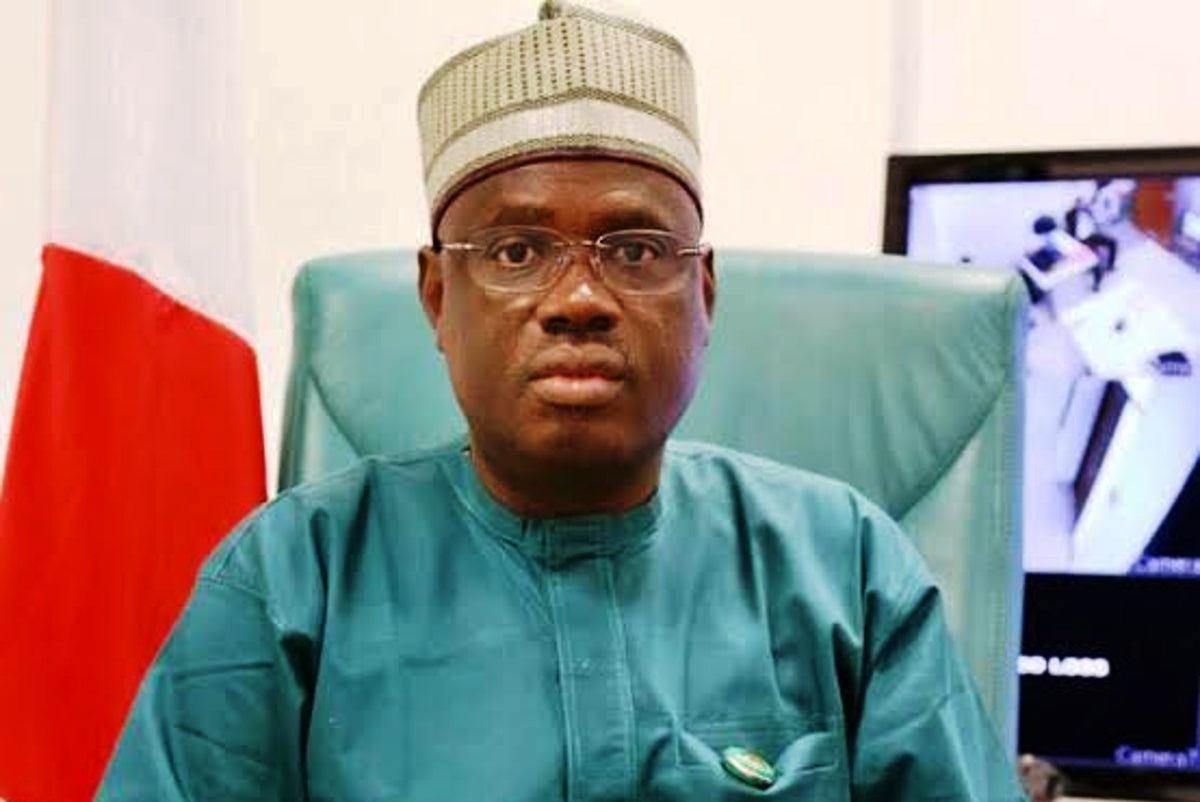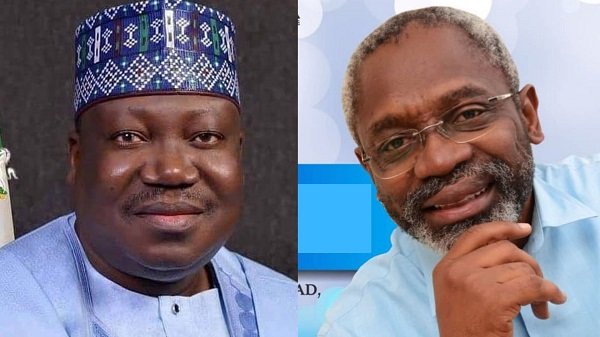Frontline elder statesman, leader of the Niger Delta Region, Chief Edwin Kiagbodo Clark has finally spoken on the rot in the Niger Delta Development Commission, NDDC demanding for an independent probe of National Assembly members over alleged claims of fraudulent acts.
In the letter, the leader said going by the plethora of allegations levelled against NASS members there’s need to allow the accusation finger to explore all directions.
To this end, Chief Clark advised leaders of NASS to as a matter of urgency constitute an independent investigative panel to exhaustively look into the various allegations raised.
He said the people of the Niger Delta are behind President Muhamnadu Buhari forensic audit of the Commission.
The former Federal Commissioner of Information went memory lane to 1999 giving a narrative of what transpired and efforts that led to the formation of NDDC.
In summation, Chief Clark said”if nothing is done, and urgently too, to investigate these grievous allegations leveled against these members and by extension the National Assembly, I must say that it will erode the confidence people, especially, Niger Deltans, have on the National Assembly.
Read details of his letter below:
The happenings in the NDDC, since the dissolution of the Oil Minerals Producing Areas Development Commission (OMPADEC) by the Niger Delta Development Commission (NDDC) Bill over 20 years ago for which I was very much involved, have been of great concern to all of us in the region, having regard to the amount of money sunk into the Commission by the Federal Government (FG), but there is nothing to show for it. The NDDC is an intervention agency brought about to salvage the people of the Niger Delta Region, but this purpose has completely been defeated. And that is why as a leader and major stakeholder, I have to speak out openly.
As leaders, elders and youths of the Niger Delta region, most of us fought for the establishment of the Niger Delta Development Commission, risking our life and all that is dear to us; for these persons to blatantly rob the people of the Niger Delta, if these allegations against them are true, is murderous. Those, whose blood was shed, fighting for the development of the region, would be rolling in their grave. To show how much I have been involved in this cause right from inception, I reproduce here an excerpt of a Communiqué we issued at the end of one of the several meetings we held in the course of the struggle for the development of the region:
COMMUNIQUE OF THE ONE-DAY MEETING OF THE SOUTH-SOUTH PEOPLES CONFERENCE (SSOPEC) HELD AT THE PETROLEUM TRAINING INSTITUTE (PTI), EFFURUN, WARRI, DELTA STATE ON THE 9TH OF OCTOBER, 1999.
PREAMBLE:
…. The meeting which was held to hear the Report of the 13-man SSOPEC Delegation to Abuja in August to meet with Mr. President, Chief OlusegunObasanjo, GCFR, and members of the National Assembly concerning amendments to the Presidential Bill on the establishment of the Niger Delta Development Commission (NDDC ); and to propose further amendments necessary to protect the interest of the Niger Delta people was presided over by the SSOPEC Chairman, HRH Pere (Dr.) H. J. R. Dappa-Biriye; and supported by the Deputy Chairman of SSOPEC, Chief E. K. Clark.
The meeting also registered the attendance of His Excellency, Obong Victor Attah, Executive Governor of Akwa-Ibom State, Government representatives of the South-South States, Traditional Rulers and Chiefs, Opinion Leaders, Women Groups, Youths and Non-Governmental Organisations.
SUMMARY OF RESOLITIONS:
Having heard the Report of the SSOPEC Delegation to Abuja and inputs made by Conferees, the following resolutions were taken:
That in Nigeria our governments are cognate in power-sharing. Therefore, the coastal States in the Niger Delta Development Commission are entitled to two hundred (200) nautical miles into the sea as part of their areas for working out their dues. Beyond this point and up-to some three hundred and sixty (360) nautical miles Nigeria’s Federal Government and the International Community can combine to reap the resources of the sea. These are prescriptions of modern laws of the sea approved by the United Nations. It is necessary that these features be spelt out in our Niger Delta Development Act for endorsement by our National and State Assemblies;
SSOPEC supports the youths’ attitude towards the issue of Oil and Gas Companies operating in the zone to have their headquarters within the States in which they operate. The Federal Government should extend its objective policy of relocating corporations, firms and establishments to areas where they should be properly sited especially in the South-South which is at present the haven and bowel of Nigeria’s Oil and Gas resources; SSOPEC noted that the recent crises in the NLNG, Bonny and NNPC, Port Harcourt would have been averted if the headquarters of these companies are sited in the right locations; and that this policy will mitigate the restiveness of the youths in the Niger Delta….;
That SSOPEC supports the idea of having the headquarters of the NDDC in Port Harcourt where land is available for the projects as indicated in a diagram brought to the meeting by the SSOPEC Chairman; and that branch offices must be created for each Member State of the Commission;
That if OMPADEC is to be scrapped as mooted in the NDDC Bill, then the NDDC must have the political goodwill and adequate funding to address the problems of poverty, neglect and backwardness in the Niger Delta; and that like the Petroleum Trust Fund (PTF), debts owed OMPADEC Contractors must be paid by the Federal Government to reduce the financial burden of the NDDC and to allow for a better focus on the management of new project priorities;
That SSOPEC should organize a Youth Conference to properly articulate and synchronize the position of the youths and elders in the South-South zone in order to ensure peace, unity and progress in the Niger Delta.
…. Finally, that SSOPEC Delegation with a mandate to lobby for the inclusion of the protective clauses for the Niger Delta in terms of structure, scope of functions and finding should be commissioned immediately to leave for Abuja.
Signed
HRH PERE (DR.) HAROLD J. R. DAPPA-BIRIYE (OON; JP)
Chairman, SSOPEC”
The leadership of the two Committees on Niger Delta Affairs both in the Upper and Lower Legislative Chambers has been accused by previous Managements of the NDDC, but they (the previous Managements) did not have the courage to speak out.
Part ofthe current Acting Managing Director of the Commission, Prof.Pondei’s statement as contained at pages 25 and 26 of the Vanguard Newspaper of Saturday, May 30, 2020, said “We have faced so much pressure from some members of the National Assembly not to send certain files to the forensic auditors…. We have refused to pay out ₦6.4 bn for the 132 jobs which have no proof of execution…. The 2019 budget was passed two months to the end of its implementation period. In fact, the hard copy was received by the Commission on April 10, 2020 when the implementation period ends in May 31…. Two, the budgets are bastardised by the National Assembly in a way that renders it all useless. A case will suffice. In the 2019 budget, we had a provision of ₦1.32 bn to pay our counterpart funding to the International Fund for Agricultural Development (IFAD) for the $129.7m Livelihood Improvement Family Enterprises Programme in the Niger Delta (LIFE-ND). The National Assembly cut the provision to ₦100 million. Are we going to IFAD, a United Nations agency, to tell them to bring their $129.7m when our National Assembly says we can only pay ₦100 million out of ₦1.32 billion obligationthe National Assembly members insert items we have no plans for these items are then forced on the Commission when it is not part of its master plan…. While acknowledging that the National Assembly reserved the right to probe the NDDC…. We suspect that the probe being trumpeted by the National Assembly is not for altruistic reason but an attempt by some members to arm-twist the IMC”.
The Acting Executive Director, Project (AEDP), of the Niger Delta Development Commission (NDDC), Dr. Cairo Ojougboh on his part, talked of how some members of the National Assembly (NASS), including the Senate Committee Chairman on Niger Delta Affairs, and the House Committee Chairman on Niger Delta Affairs, are openly and flagrantly committing fraud. The facts the AEDP laid bare are very incriminating of these members of the NASS if proven. He said “…. Another company called Candour went to LNG and claimed they were the ones who initiated statutory payments from LNG. And the company belongs to a serving Senator of the Federal Republic of Nigeria. The letter says they collected $28 million and then exchanged it for₦360 to a dollar. As at that time the exchange rate was not ₦360 to $1. The CBN was exchanging for ₦225 to $1. And at the end of the day, they asked for 20% of the $28 million. They were paid. They wanted to continue. Senator Akpabio said “no”, that this is fraud against Nigeria and hell was let loose. They claimed that this is the money used to work in the National Assembly in Abuja. According to the Chairman, if there is any contest in the National Assembly, this is where they source the money from. The IMC wrote letters to these contractors and because of that they declared war on the IMC”.
The AEDP stated that a sitting Senator, in 2018, got a contract for the supply of plastic chairs and tables to Secondary Schools in the Niger Delta region for the sum of ₦3.7 billion. These plastic chairs and tables were also released to the custody of the same supplier/contractor. It is even more absurd because my findings reveal that this was an extra budgetary expenditure as it was not contained nor provided for, in the 2018 Budget of the Commission. How can such sum be spent on the purchase of plastic chairs and tables, in a region that is so greatly impoverished and devastated? This is outrageous.
The AEDP also alleged that one thousand jobs which were not contained in the Budget when it was submitted to the NASS were added to the Budget of the Commission byboth the Chairman of the Senate Committee on Niger Delta Affairs and the House Committee Chairman on Niger Delta Affairs, and it was discovered that neither the Senate President nor most other Senators knew of these jobs, same for the Speaker of the House of Representatives and most members of the House. Here is what he said “Let me make it clear, the Hon. Speaker and the President of the Senate are not aware of what the Chairmen of the Committees are doing in the National Assembly. And even members of the Committee are not also aware. It is just one-man squad. Between 2016 and 2019 emergency contracts of over ₦2 trillion were awarded under the supervision of the Chairmen of both Committees. And I have the list of how the contracts were distributed. In the list the Chairman, Senate Committee on Niger Delta collected one thousand of those jobs and said he was going to share it among the Senators, but the Senators denied knowledge of such files. We have the records”. He also talked about some contractors collecting as much ₦1 billion every month as charges for collecting statutory revenues from oil companies. As a matter of fact the allegations are legion and scandalous.
The AEDP even alleged that no action has been taken on the 2020 Budget of the Commission which was submitted to the NASS, because “they are asking for all sorts of things”.He said “How did the budget run into problems? The bureaucracy told us when we came in that in 2016, there was no budget. 2017, there was no budget. 2018, there was no budget. The budget for 2019 was passed some few weeks ago. What led to it? When a Chairman of Senate Committee came in 2015, he called the bureaucracy of NDDC and told them to insert jobs worth ₦15 billion for him. They went back and complied. But when the budget was sent to him, he said he did not mean ₦15 billion, but ₦150 billion. The bureaucracy went back but could not comply because there was no way they could do that. The Chairman advised them to award the jobs as emergency jobs so that they won’t go through due processes. That was how the emergency procedures were breached and the Commission presently has liabilities of over ₦3 trillion…. The Chairman of the House Committee on Niger Delta came to us and brought out emergency training programme for ₦6.4 billion and said that the Commission should pay him ₦3.7 billion. We said this milestone you are talking about cannot be paid because you have not done it. He said the job belongs to the Speaker and we said we cannot pay. We went and met the Speaker and the Speaker said he was not aware of such thing. This was not in the budget at all. When they passed the 2019 Budget, the Chairman, House Committee included it and insisted we must pay the money and we said we cannot pay. They said the IMC has stolen ₦40 billion. How can that be possible?”
But in the face of all these allegations which the Acting Managing Director and the Acting EDP have leveled and backed up with facts and documents, the House Committee on Niger Delta Affairs is bent on carrying out an investigation into the activities of the Interim Management Committee (IMC) of the Commission.
In statements credited to the Chairmen on Niger Delta Affairs in both the upper and lower legislative Chambers, they have denied all the allegations.
The AEDP in his interview, has exonerated both of you, the Senate President and the Speaker of the House, that you are not aware of these activities of the Senate Committee Chairman on Niger Delta Affairs and the House Committee Chairman on Niger Delta Affairs. This is good to hear. One is not against the NASS performing its oversight functions; at the same time, there is need for it to investigate these scandalous allegations. And in doing so, equity and justice should prevail; both the Senate Committee Chairman and the House Committee Chairman of the Niger Delta Affairs should step aside, because as it is said, they cannot be judges in their own matter.
The allegations made against both Chairmen are too weighty that they cannot be swept under the carpet. Their off the cuff statement or explanations are not enough at all. A new investigative panel should be constituted to investigate both the IMC and these members of NASS.
Issues of corruption in the NDDC have become endemic. It was as a result of these complaints, that Mr. President, promptly and courageously appointed the IMC, to supervise the Forensic Audit which he had also set up, to investigate all the alleged corrupt practices that had been perpetuated in the Commission, before a Board will be inaugurated for the Commission. Any attempt to distract from Mr. President’s directive that forensic audit of the NDDC should be carried out, is unacceptable to the people of the Niger Delta. We are solidly behind Mr. President in this his directive.
For some time now, Niger Delta leaders led by me have unfortunately failed to condemn these few corrupt members in the NASS, who have converted and are still converting the NDDC into their personal farm yard. That is why there is always scramble and manipulations to be Chairmen and members of this “juicy committee”.
The oil in the Niger Delta was deposited there by God Almighty knowing the type of difficulty and swampy terrain He has put us in. Therefore, for the proceeds of these resources to be fraudulently taken by people who want to egocentrically enrich themselves, is unacceptable and will be resisted. This has gone on for too long and has to stop.
I want to place on record that had God in His infinite mercy and wisdom not endowed the region with such resources, it would have been difficult for any government to remember us. Even with the resources, we have to agitate to get development when the Colonial Government set up the Willink Commission of Inquiry in 1957 to look into the issues of our utter neglect. It was this Commission that designated the place a Special Area for development.
We will no longer tolerate this criminal exploitation of our resources.
Therefore, Mr. Senate President, and the Right Honourable Speaker, if nothing is done, and urgently too, to investigate these grievous allegations leveled against these members and by extension the National Assembly, I must say that it will erode the confidence people, especially, Niger Deltans, have on the National Assembly.
Thank you.
Chief (Dr.) E. K. Clark, OFR, CON
Leader, South-South
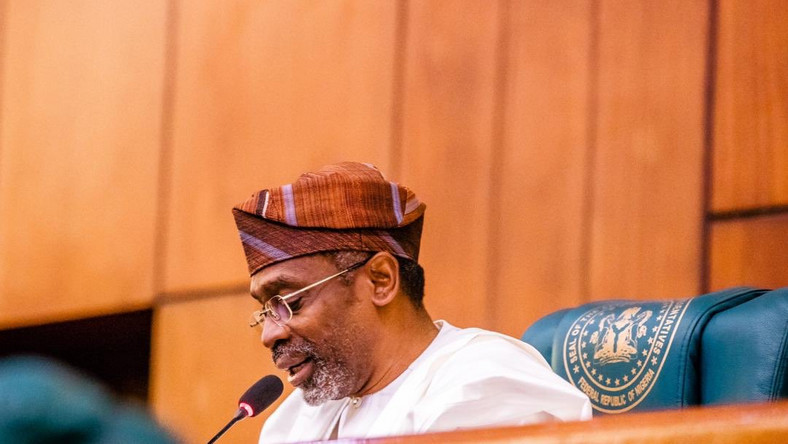
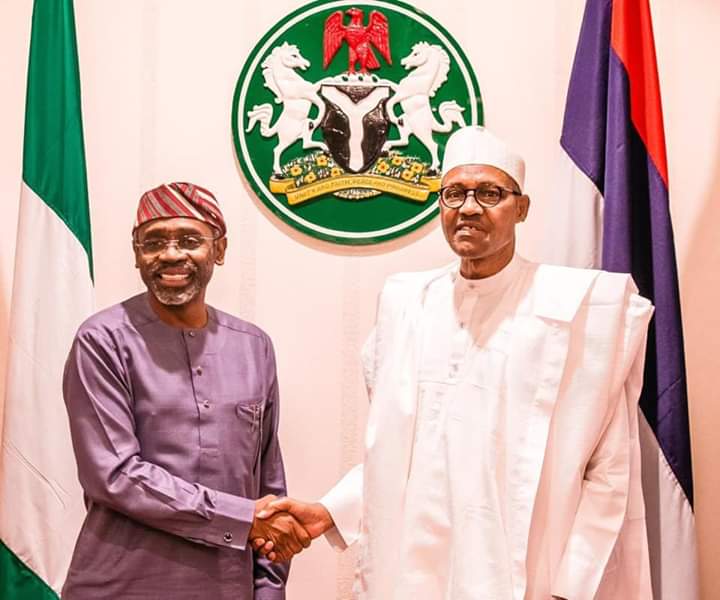
![[TNG Analysis] One Year After: Gbajabiamila’s House still under massive re-construction](https://thenewsguru.ng/wp-content/uploads/2020/06/Gbajabiamila.jpg)
